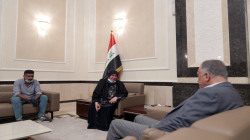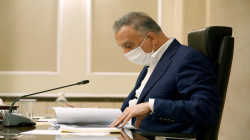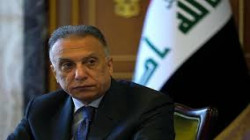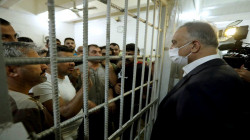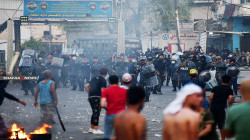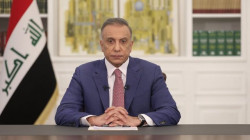Al-Kadhimi between two assassinations: Security breach leads to U.S.-Iranian convergence
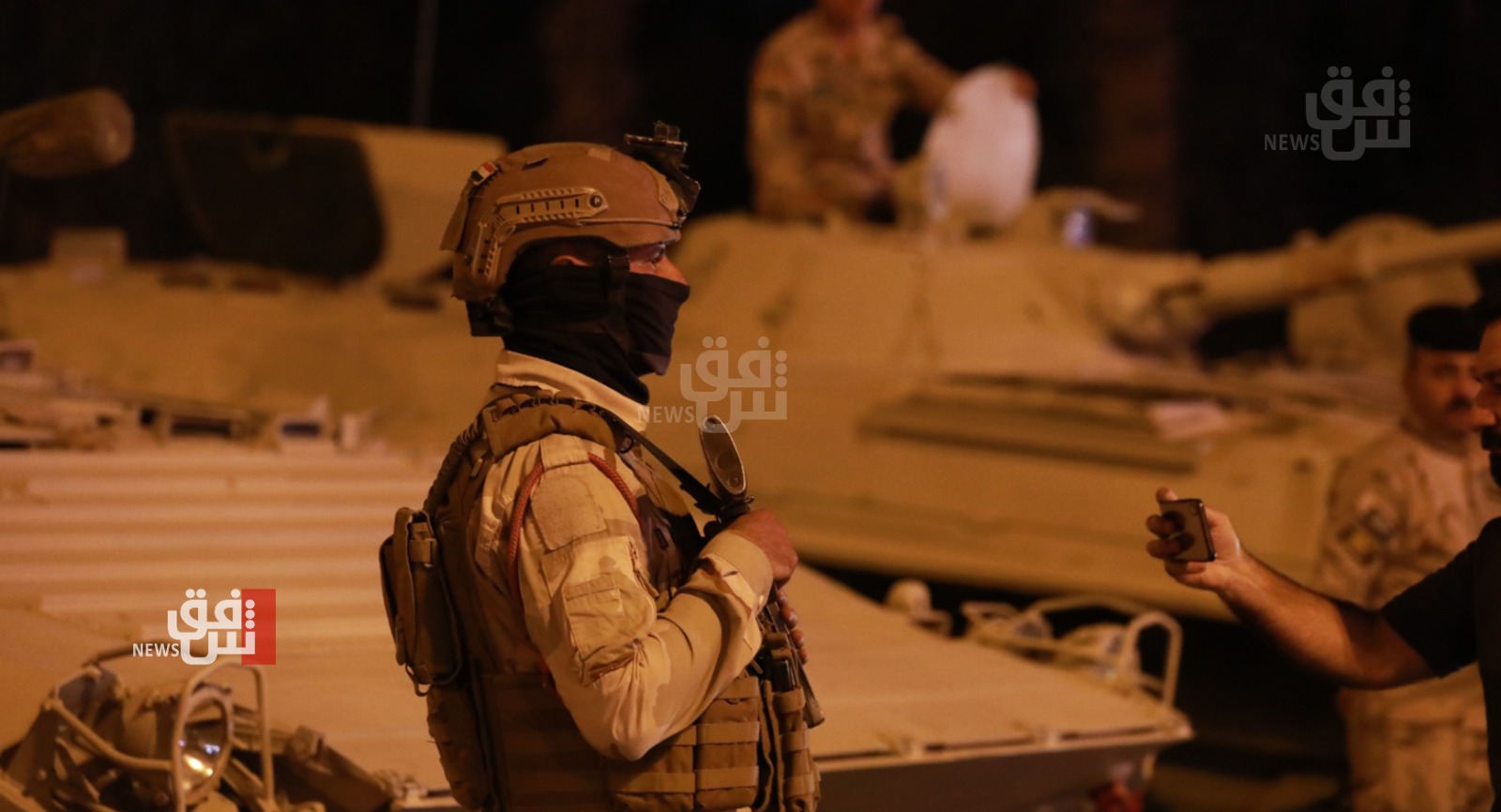
Shafaq News / The "assassination attempt" against outgoing Prime Minister Mustafa al-Kadhimi in the Green Zone a week ago did not receive the same political and media attention as the "crime" announced at dawn Sunday, which shook the Iraqi political scene and represented a rare moment of transformation to both the internal and external regional intersections.
The scoop of the attempted assassination by three drones will fade in a few days, not only because of how it was carried out but perhaps more importantly, because of its consequences and the questions it raised, starting with the "security breach" of targeting the head of The Iraqi authority in his residence inside the heavily fortified Green Zone, the timing of his presence in that exact place, through to the internal and regional political significance of the failed assassination attempt.
Undermining the state's prestige
Some experts believe that the drone attack on al-Kadhimi's residence is an attempt to undermine the prestige of the state, as well as a warning message from the perpetrators that they are above the constitution and the regime. Therefore they are able to impose their political will.
In spite of the continuous implicit finger-pointing at a particular Iranian-backed group, not a single official figure, even their most vigorous rivals, has openly accused them; So far, there are only leaks from anonymous sources to international news agencies about the involvement of an "Iranian-backed group".
"They were close and confirmed that the target was in the house, and then the drone was utilized," said Aleski Leonkov, a Russian military analyst, alluding to the role of "informants" in the assassination attempt.
His other significant point was that the use of drones as a weapon to assassinate a person is not a new approach and is not restricted to terrorist groups alone, as the Americans and Israelis are also skilled in using this technology, recalling the death of Iranian General Qassem Soleimani nearly two years ago.
Regardless, no official announcement has been made, and al-Kadhimi himself has not yet accused any party since Sunday, at a very complex moment of the Iraqi history, given the situation that has prevailed since the October 10 election and the emergence of an unprecedented political scene in the country.
These new Iraqi incidents coincided with the assassination attempts against al-Kadhimi on October 31, when two missile strikes targeted the al-Mansour area, where the Iraqi intelligence service was based, just as al-Kadhimi was inside the headquarters, and then with the attack of three drones on Sunday, which dropped bombs on the PM’s residence as he was about to enter, CNN reported.
Iraq amid two regional events
Iraq's new realities, including the assassination attempts on al-Kadhimi, overlapped with a volatile political atmosphere in Iraq, with political parties refusing to recognize the election results and fearing the attempts to eliminate them from the political scene by "the biggest winner", Muqtada al-Sadr.
At the regional level, Iraq is anticipating two key events: Iran's confirmation that it will attend nuclear talks in Vienna on November 29, and the official date for the end of the combat role of the remaining small U.S. forces in Iraq by the end of 2021.
The updates that developed in the past few hours have generated swift and intense U.S. and Iranian vigilance. Washington has avoided blaming a specific party, not even Iran, which the U.S. generally blames for numerous acts of violence and tension in Iraq and the region.
The U.S. posture was also uncommon for other reasons, such as the fact that the U.S. State Department was quick to denounce what it called "a terrorist act attacking the center of the Iraqi state". Also, president Joe Biden hailed "the leadership al-Kadhimi has shown in calling for calm, patience, and engagement to defend state institutions and foster the democracy that Iraqis deserve so much" in a written statement.
Biden went further to say that he had promised Iraqi authorities to provide adequate support to the investigation into the crime to reveal the perpetrators.
Furthermore, on Sunday, the U.S. Secretary of State Antony Blinken called al-Kadhimi to reaffirm his offer of cooperation in the inquiry and emphasize that the attack was directed at "the sovereignty and stability of the Iraqi state."
Qaani in Baghdad
Meanwhile, the Commander of the Quds Force of the Iranian Revolutionary Guard Corps, Ismail Qaani, arrived in Baghdad on Monday on an unannounced visit and met with leaders of Shiite factions as soon as he arrived. News leaked from the meeting confirmed that the Iranian general, who also met with al-kadhimi, rejected any escalation with the Iraqi government and called on the factions to accept the results of the elections and work to unify the Shiite political position in the next phase.
Tehran was quick to condemn al-Kadhimi's attempted assassination and express support for Iraq's stability and security, "The terrorist attempt against al-Kadhimi is the result of foreign think tanks that have brought nothing but turmoil and chaos to the oppressed Iraqi people by creating and supporting terrorist groups and occupying this country for years," said Ali Shamkhani, secretary-general of Iran's Supreme National Security Council.
Messages from influential groups
After the two assassination attempts against al-Kadhimi, the regional statistics must be carefully analyzed; according to Ihsan al-Shammari, director of Iraq's Center for Political Thinking, "the choice by prominent factions to target al-Kadhimi sends a message to the rest of the parties and Sunni, Kurdish, and even Shiite leaders that any attempt to ostracize these actors would bring the same fate."
"The strength of the state must be shown in the sense of restraint and investigations, as well as the rapid arrest of the culprits because the issue is no longer linked to establishing the prestige of the prime minister as much as it is about restoring confidence in the state and its armed forces," al-Shammari said.
"It is the correct approach to construct the state," he continued, "but if it goes towards a political solution, the same groups might lead a military coup."
"The investigations will reveal the identities of the perpetrators, but in the end, the process of accusing al-Kadhimi and retaliating against the Iraqi government (in reference to those who demanded retribution from security agencies that killed protestors in shooting incidents near the Green Zone) provides an environment to the process of the decision to assassinate the prime minister, especially since it is the second attack after the one that took place in the intelligence service headquarters on October 31st, where al-Kadhimi was present," he continued.
"The explosive-laden drones were sent to assassinate al-Kadhimi and send a deliver a message to all other parties at the same time," al-Shammari said.
Al-Shammari ruled out the possibility of declaring martial law before completing the investigation into the assassination attempt against al-Kadhimi. "It is difficult to implement martial law in the country for many reasons, including the fact that the parliament is dissolved. In addition, the security institutions has all the powers to maintain security and deal with the assassination, and the National Security Council's statement appears to be indicative of that."
